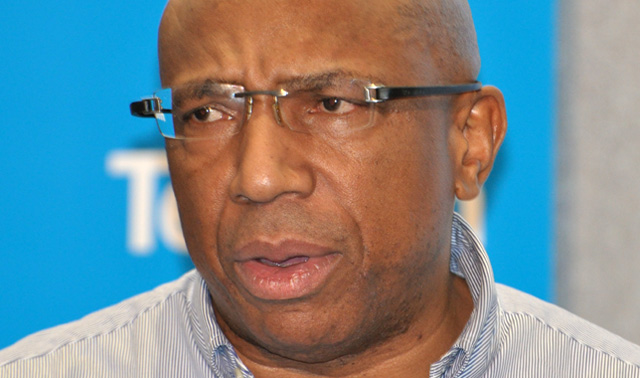
A dramatic restructuring of Telkom’s business is on the cards, company executives made clear on Monday. The changes, to be implemented over no more than five years, will lead to fundamental changes in the way Telkom does business.
The first hint of what is to come was buried in the commentary the company published alongside its 2015 financial results on Monday. And it suggests the planned changes are going to have a big impact on Telkom’s workforce, especially on its field services division, which installs and maintains its infrastructure.
It’s understood Telkom will begin engaging with staff on the planned changes from Tuesday morning, with meetings happening through Wednesday, too.
In its results statement, Telkom says its turnaround actions to date have “delivered results”, but it needs to become “more efficient”.
“We are reviewing our current operating model,” it says. “A major part of this review is looking at a deep functional separation between our wholesale and retail businesses.
“We foresee an infrastructure business unit which will be accountable for network deployment and network efficiency.”
However, TechCentral understands that the changes go even further, with a split between Telkom’s retail consumer-facing and enterprise-facing divisions planned, too.
If the company goes ahead with its plans, it will follow in the footsteps of many other incumbent fixed-line operators around the world that have either voluntarily split their operations or done so under pressure from regulators.
In the UK, BT Group (formerly British Telecom) hived off its infrastructure division about a decade ago to create Openreach, which services BT and all other licensed telecommunications operators on an equal and transparent basis. Many analysts believe the move helped improve competition for broadband services in the UK market.
In its statement, Telkom says tellingly that for its proposed new operating model to succeed, it “must have an efficient and high-performing network”. It appears to believe that the best way of achieving this is by setting its wholesale division free to serve the telecoms market more broadly, similar to the Openreach model.
Telkom isn’t giving away too much yet, saying only that it plans to update the market about its plans — specifically for its wholesale business — sometime in the third quarter.
The changes look set to have a big impact on Telkom’s workforce, which many analysts say remains too big next to rival firms. The company employs more than 20 000 people, many of them in its field services operation, which looks after last-mile network maintenance, among other things.
“We must have a highly efficient and cost-effective workforce,” Telkom says. “Within our workforce there are significant opportunities to create a highly skilled and productive team by ensuring that employees have the right skills and capabilities to support the changing business. Much like most telecoms operators globally, we must move towards a leaner and more productive workforce.”
It says its aim is to achieve a cost-to-revenue ratio of 25% in the next four years. Further outsourcing and layoffs appear to be inevitable, and may even accelerate.
In an interview with TechCentral, Telkom CEO Sipho Maseko says the wholesale division must transform itself to serve the broader market, not only Telkom. He envisages a future where Telkom is no longer a “vertically integrated operator”.
We have given ourselves five years to get to this deep functional separation — Sipho Maseko
The wholesale division’s raison d’être will be providing the services it supplies to Telkom today to 400 other licensed operators on a fair and equitable basis.
The move will probably be the first step to the eventual full structural separation of the wholesale division, Maseko says. At the very least, the wholesale division will become much more autonomous in the the short term.
Maseko says Telkom is “shining the light very deeply on the structural costs” in the wholesale business, with a view to making it much more efficient. This will entail a review of headcount, along with taking another look at technologies that are deployed and how best to get to “optimum deployment levels”.
“We have given ourselves five years to get to this deep functional separation,” Maseko says.
Over time, the retail, enterprise and wholesale divisions will “morph into unrecognisable businesses” with their own cultures.
“The consumer business will have to play more in content and other value-added stuff. The enterprise services business will have to be less about connectivity and more of an IT services business. And wholesale will be about building a robust network as efficiently as possible to everyone in the market.” — © 2015 NewsCentral Media




